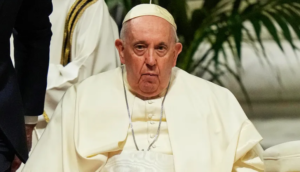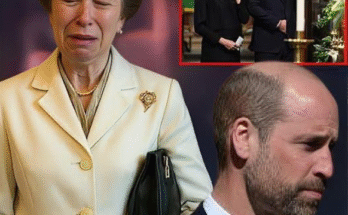Pope Francis’ health has become a growing concern in recent weeks as his condition remains critical. The 87-year-old pontiff, who has led the Catholic Church since 2013, has been struggling with a number of health issues, including mobility problems, which have forced him to cut back on some of his public engagements. These health challenges have brought renewed attention to a significant document he signed 12 years ago—a resignation letter that was prepared long before he became ill.
The letter, which was signed in 2013, was not intended to be used immediately but was drafted as a precautionary measure should the Pope ever feel that he was unable to continue his papacy due to health reasons. Pope Francis himself has been open about the physical demands of the papacy, and the decision to write the letter was in part a recognition that even the most dedicated leaders have limits. It’s understood that the letter was signed in the event that he might be faced with a situation where he felt his health could no longer support the heavy responsibilities of the role.
The Pope’s decision to prepare this letter speaks to his realistic understanding of the challenges that come with leading the Catholic Church, especially at an advanced age. It also demonstrates his commitment to the wellbeing of the Church, acknowledging that if he were no longer able to perform his duties effectively, it would be in the best interest of the faithful to step aside. While Pope Francis has not made any official statements regarding the possibility of resigning, the existence of this letter has left the Catholic community wondering whether we could see a change in leadership sooner than anticipated.
Pope Francis’ health issues are not entirely new. Over the years, he has experienced various ailments, including knee problems that have required surgery and other treatments. Despite these challenges, he has continued to fulfill his papal duties, traveling around the world and addressing key global issues such as climate change, poverty, and the ongoing refugee crisis. However, in recent months, his health has taken a more significant toll, and it is clear that his ability to manage his demanding schedule is becoming more difficult.
In light of his current condition, the question of his resignation has been raised within both Vatican circles and the broader Catholic community. While it is not uncommon for popes to resign—Pope Benedict XVI famously did so in 2013—there has been no indication that Pope Francis plans to step down anytime soon. Many view him as a transformative figure, and his work in the Church, particularly his focus on reforming the Vatican and engaging with issues of social justice, has earned him both admiration and criticism.
The letter that Pope Francis signed 12 years ago provides some clarity on what might happen if his health were to worsen, but for now, there has been no formal indication that he intends to resign. The Catholic Church is facing a period of uncertainty, as many Catholics and religious leaders await the Pope’s next steps. Whether he continues to lead or ultimately steps down, Pope Francis has already left a lasting impact on the Church and the world.



